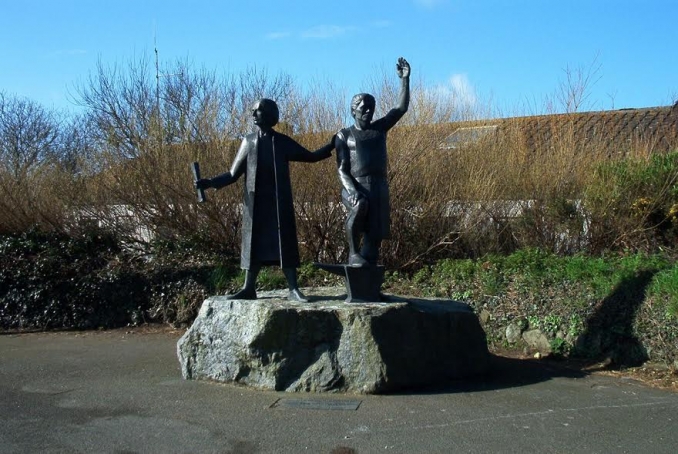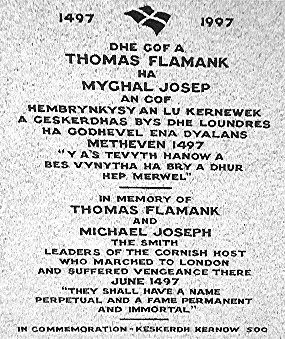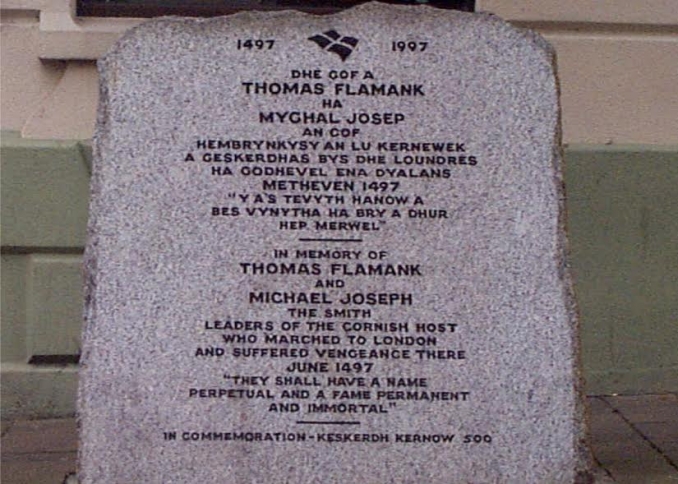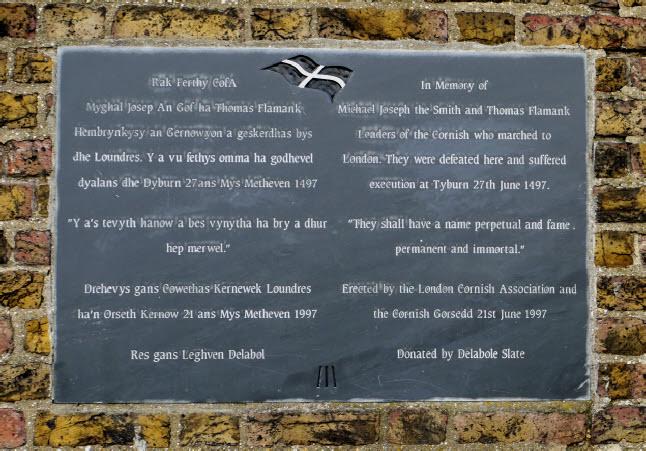Commemorate The Cornish Patriots - Michael Joseph 'An Gof' & Thomas Flamank
TUESDAY 27th JUNE, 2017 - A DAY TO REMEMBER!
LET THE CORNISH NEVER FORGET THEIR GREAT PATRIOTIC LEADERS - Michael Joseph 'An Gof' of St Keverne & Thomas Flamank of Bodmin who gave their lives for Kernow during the great Cornish patriotic uprising of 1497
Commemorations in St Kerverne & Bodmin during the evening of Tuesday 27th June, 2017 starting at 7pm (see links below):
The start of Cornish patriotic resistance wars against English taxation, rule and imposition which continued right through til 1549 over which time, thousands of Cornish gave their lives in defence of their motherland, its freedoms, practices , cultures and beliefs
The background to the commemoration of the Cornish patriotic martyrs:
The Cornish rebellion of 1497 is one of the key events in Cornish history. It was in response to an increase in taxes by Henry VII to raise funds by taxing the Cornish to fund an army to fight the Scots.
The Cornish wanted none of this and defied England.
The prime mover was a blacksmith from St. Keverne, Myghal Josep 'an Gof' ('the smith'). He got together a troop of men who when they reached Bodmin were joined by people assembled by a lawyer of that town, Thomas Flamank.
Their army gained numbers as they went eastwards and was into the thousands when they reached the outskirts of London.
Henry VII had to abandon his efforts to tackle the Scots and his troops and mercenaries met the Cornishmen at Blackheath.
A battle commenced and the Cornish patriotic leaders were captured, they were drawn on a hurdle to be hanged, drawn and quartered.
Before their execution on 27th June An Gof boasted that ''he should have a name perpetual and a fame permanent and immortal''
Thomas Flamank said "Speak the truth, and only then can you be free of your chains".
Both men have been honoured ever since by Cornish people.
The Cornish were not completely quelled by events that year and some joined in Perkin Warbeck’s rebellion later that summer.
This, however, petered out after reaching Exeter with Warbeck fleeing the scene. Henry VII’s main subsequent punishment of the Cornish was to fine those who had taken part in the rebellions.
The Cornish continued in their patriotic opposition until 1549, a period which one historian has called the 'Anglo-Cornish Wars'
Below: the great statues in St Keverne, the commemmorative plaques in St Keverne,Kernow, Bodmin, Kernow where there are two and Blackheath in London, England.
Kernow bys vyken!









